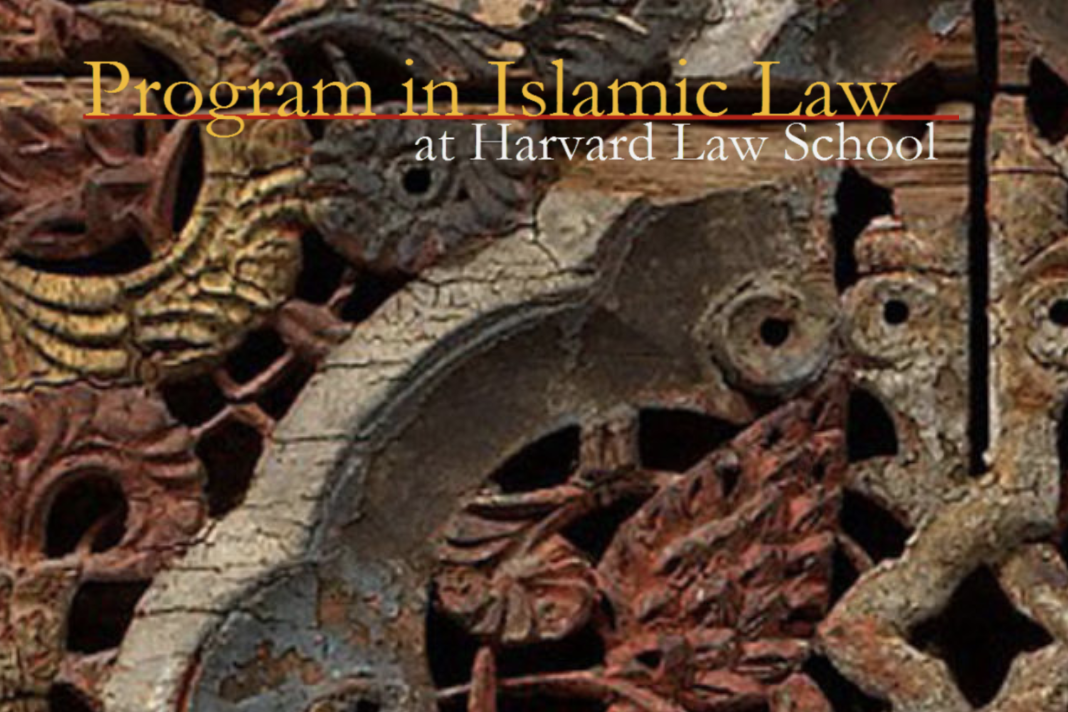
https://pil.law.harvard.edu/ra-ships/
Professor Intisar Rabb and the Program in Islamic Law at Harvard Law School are accepting applications for summer 2020 research assistants. The position descriptions are given below. Interested students can submit their applications via Formstack, and any questions should be sent to Henry Shull (hshull@law.harvard.edu). We will begin reviewing applications on May 1.
1. CorpusBuilder: An Online Library and OCR Tool for Islamic Law and Related Texts
Especially relevant in a time of COVID-19, when remote library resources are more necessary than ever before, the Program in Islamic Law, in conjunction with the Open Islamicate Text Initiative (OpenITI), seeks research assistants to work on an Arabic and Persian OCR project to build a tool that can read PDFs of Islamic legal texts and related materials. Students will create and review training data for ground truth models of different Arabic and Persian typefaces. They will receive training on the entire OCR process and learn the foundational steps for producing digital corpora. They will also have the opportunity to co-author papers on the subject of Arabic and Persian OCR with the broader research team. The position is designed to teach students key skills in the developing field of digital humanities. They will be working with scholars of Arabic and Persian: Professor Matthew Miller at the University of Maryland, Professor Intisar Rabb at Harvard Law School, Professor Sarah Savant at Aga Khan University (London), and Professor David Smith and other computer scientists at Northeastern University.
We seek 1 full-time RA, 2 RAs at an average of 18 hours a week, or 3 RAs at an average of 12 hours a week for the period May 18–August 14. Familiarity with Arabic is required, and familiarity with Persian is also preferred. Positions are open to Harvard Law School students (JD, LLM, SJD) and Harvard graduate students (MA or PhD students from SEAS, History, CMES, etc.). The position pays $25/hour. Please indicate in your application whether you are interested in full-time positions (HLS students only) or part-time positions (8–20 hours per week) and your weekly availability over the summer. Interested students should submit their applications—including a single paragraph of interest, resume, and unofficial transcript—via Formstack, and they should send any questions to Henry Shull (hshull@law.harvard.edu). We will begin reviewing applications May 1.
2. Courts & Canons: Islamic Law and Data Science
The Program in Islamic Law, directed by Professor Intisar Rabb, will head a project called Courts & Canons, by which we will construct a database and set of computational tools to facilitate new research on key decision-makers (“judges & jurists”) and the laws they issued (“cases & canons”) in Islamic legal history. Students will have the opportunity to work directly with faculty and software developers on either research or data science aspects of the project, to build a meaningful tool to enable innovative new research legal history. The set of data we will collect and tools we will build will, for the first time, allow researchers to organize and combine sources of law with key social-historical information on a single online platform with focus on Islam’s generative “founding period” (1st–5th/7th–11th centuries). We will supplement this database with computational tools that facilitate collaborative research among scholars seeking to answer major questions in Islamic law and history, and to map them visually across time and space.
Summer RAs will work on various aspects of the project: research and data entry, and computer science and data visualization or coding on various issues of Islamic law and history. Professor Intisar Rabb will supervise and guide the project, in collaboration with Dr. Dana Lee, a current PIL fellow and an incoming law professor at UC Irvine School of Law; the team will work closely with researchers and our partner software developers on all data science aspects of the project. PIL Associate Director Mona Rahmani will coordinate among all parties. Students interested in the Islamic law research side need knowledge EITHER of Arabic or Persian and some familiarity with Arabic- or Persian-language legal texts OR of historical gazetteers. Students interested in the data science side need background or ability in coding and data modeling, data visualizations, or data collection and mapping for online gazetteers plus an interest in applying these skills to legal or historical texts.
Positions are open to Harvard Law School students (JD, LLM, SJD) and Harvard graduate students (MA or PhD students from SEAS, History, CMES, etc.). Please indicate in your application whether you are interested in full-time positions (HLS students only) or part-time positions (8–20 hours per week) and your weekly availability over the summer. Interested students should submit their applications—including a single paragraph of interest and background (research, data science, or both), resume, and unofficial transcript—via Formstack, and they should send any questions to Henry Shull (hshull@law.harvard.edu). We will begin reviewing applications May 1.
